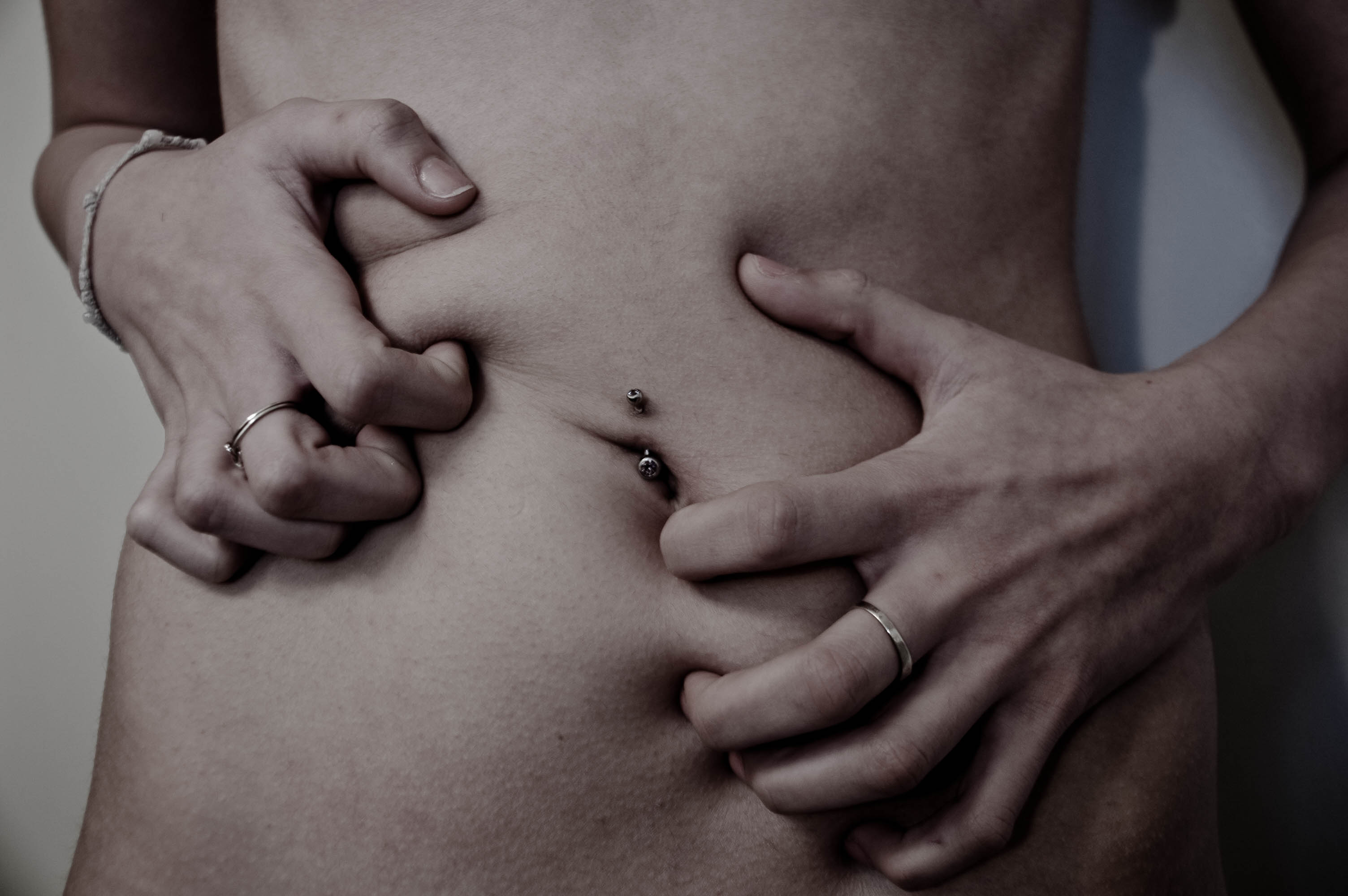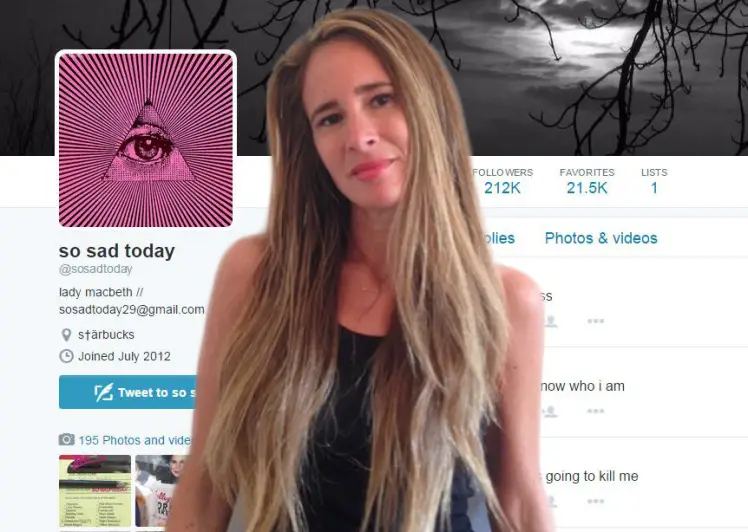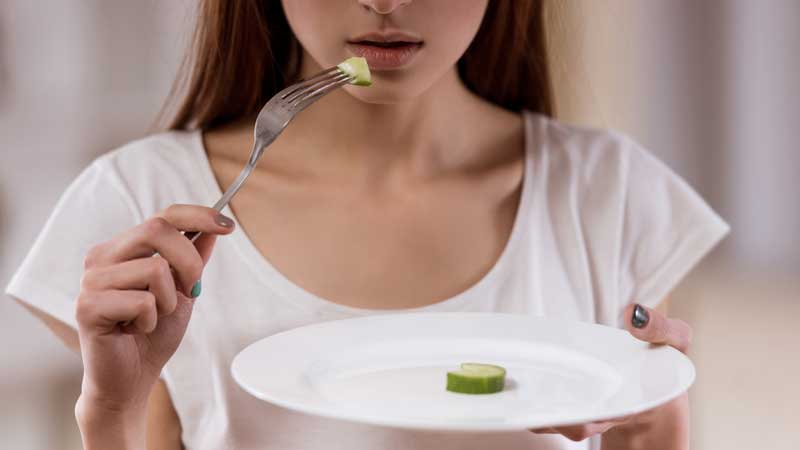Disordered Eating vs. Eating Disorders
Over-diagnosing people with eating disorders is a real thing and it needs to stop, but where do you draw the line?
By Kayla Kibbe, Connecticut College
“Everything in moderation” was my mother’s golden cliché.
Never really one to resort to “Because I said so” or “If you keep making that face it’ll stick like that,” this was the one motherly adage that my mom just couldn’t resist. And being a petite 5’2”, seldom exceeding 110 pounds, faultlessly even-tempered and a working mom who managed to support our family financially and still have a homemade dinner on the table every night, she seemed to practice what she preached.
Despite her good example, I responded to her reasonable advice by being completely incapable of doing absolutely anything in moderation. From childhood, I took an instinctive, black-and-white approach to just about every aspect of my existence. An all-or-nothing mentality dominated my schoolwork, my relationships and, most importantly, my eating habits.

As a result, my eating has fluctuated between overindulgence and restriction, occasionally punctuated by purging behaviors and arguably excessive exercise since early adolescence. Do I have an eating disorder?
Depends who you ask. Most days, I wouldn’t make the cut for an official diagnosis.
Although my weight has approached both ends of the BMI’s “normal” spectrum, it has never extended outside that range, which knocks anorexia out of the running. Additionally, my purging behavior is seldom frequent enough to meet diagnostic criteria for bulimia either.
But, casually mention that you occasionally go a few days without eating or sometimes put your fingers down your throat as a means of weight control, and you’re going to raise some eyebrows.
A Diagnosis for Everyone
This flirtation with behaviors commonly associated with, but not diagnostically indicative of eating disorders would plant me in the dreaded category of Eating Disorder Not Otherwise Specified. This subclinical realm is the diagnosis for the undiagnosable, the J.V. team for people who are bad at eating but don’t quite take it to the varsity level.
The very existence of this diagnosis is enough to prove there is a problem with the way society views eating and mental health today. The 1983 death of singer Karen Carpenter launched a media trend of promoting eating disorder awareness that continues to this day. While eating disorders are clearly dangerous issues that should be acknowledged and taken seriously, this growing societal hyper surveillance may be doing more harm than good.
Saddling otherwise healthy individuals with the burden of mental illness under a diagnosis like EDNOS is a clear sign of this overreach. In a world where literally not having an eating disorder is its own diagnosis, bad habits become “warning signs,” and people who fall short of eating three square meals a day (or six, or whatever the latest health trend decides is normal on any given day) become mentally ill. Ultimately, putting this much emphasis on society-wide eating disorder monitoring and diagnosis is only making those behaviors more stigmatized.
Disordered Eating
In a 2016 “Vice” article, Twitter’s reigning queen of sadness, poet and author Melissa Broder, made a huge step in altering this increasingly problematic narrative with the introduction of what she calls “disordered eating.”

Under the pen name So Sad Today, Broder has made significant strides in normalizing depression and other mental illnesses in the last few years, albeit not without some controversy. Through her once anonymous Twitter account, Broder uses humor and the effortlessly relatable power of social media language to make dialogue surrounding mental illness more accessible for sufferers and healthy individuals alike.
(Note: Although Broder’s Twitter account is no longer anonymous, I will refer to her as So Sad Today for the remainder of this article, as her “Vice” column is still published under the pen name.)
In “Eating Gives Me Anxiety and Not Eating Gives Me Anxiety,” So Sad Today explores her troubled history (and still troubled present) with food. With the simple statement, “I would say that my eating is disordered, but I don’t have an ‘eating disorder,’” the article highlights a crucial distinction between mental illness and mere bad eating habits, shedding a much less threatening light on the otherwise functional individuals whose irregular eating patterns would land them in the diagnostic no-man’s-land of EDNOS.
Normalizing vs Glamorizing
Of course, no one can try to normalize anything without someone else taking the opportunity to write an op-ed accusing them of glamorizing it. And, admittedly, as a chubby middle schooler, there was something glamorous about eating disorders for me.
I remember classmates stealing sensational teen novels about anorexic girls from their older sisters and bringing them to school for us to leer over at recess. There was a time where I would spend hours online looking up eating disorder support forums and reading people’s recovery stories. Maybe I did grow up something of an aspiring anorexic.
But the point is, So Sad Today’s distinction between eating disorders and disordered eating is an important one. In identifying the difference between a dangerous mental illness and some irregular eating habits, the article relieves EDNOS-type individuals of the burden of diagnostic stigma, while simultaneously raising awareness about the severity and gravity of true psychological eating disorders.
Eating disorders are serious. But, when everyone who skips a meal is suddenly accused of diagnosable warning signs, it really only diminishes the severity of eating disorders in the public eye. Establishing a distinction between eating disorders and disordered eating helps both casual over- or under-eaters, as well as individuals suffering from legitimate mental illness, get the attention, or freedom, they need.
No One Is Good at Eating and That’s Okay
In recent years, the body positive movement has reached new heights of encouraging acceptance and celebration of a variety of body types, particularly heavier ones. Recently, 220-pound Instagram model Naomi Watanabe has been making headlines for her contributions to the movement. While being heavy and even obese is becoming increasingly accepted in the media and in society, showing signs of disordered eating still carries significant stigma.
While major publications have jumped on the body-positive trend, regularly glamorizing the overweight and promoting obesity, searching for pro-ana and pro-mia material still feels like turning down a dark alley and finding yourself on the wrong side of the internet. Search “thigh-gap” and Pinterest asks if you’re “struggling with an eating disorder” and provides a link to get help.
Admittedly, disordered eating habits are unhealthy. Fasting for a few days to drop a quick five pounds is probably not the best idea, and purging is certainly not great for you, no matter how infrequently. That said, no one is getting to 220 pounds by following a healthy diet either.
The bottom line is, very few people are actually making healthy eating choices all the time.
But, if society is making a push to accept over-eaters, there’s no reason under-eaters, or any of the millions of people who fall into a variety of other irregular eating habits, should be excluded from body-positivity.
As So Sad Today says, “I’ve been pretty unapologetic about my disordered eating. My feeling has been that it’s not killing me and its not for others to decide…Disordered eating seems to work for me.”
Body-positivity is about finding what works for you and accepting what works for other people. If society is ready to accept and celebrate willful overeating, then it can extend the same favor to other individuals whose eating deviates more or less innocuously from the norm. If I want to spend a day or two subsisting entirely on diet coke and gum, I will. No amount of Pinterest thin-shaming can stop me.

















